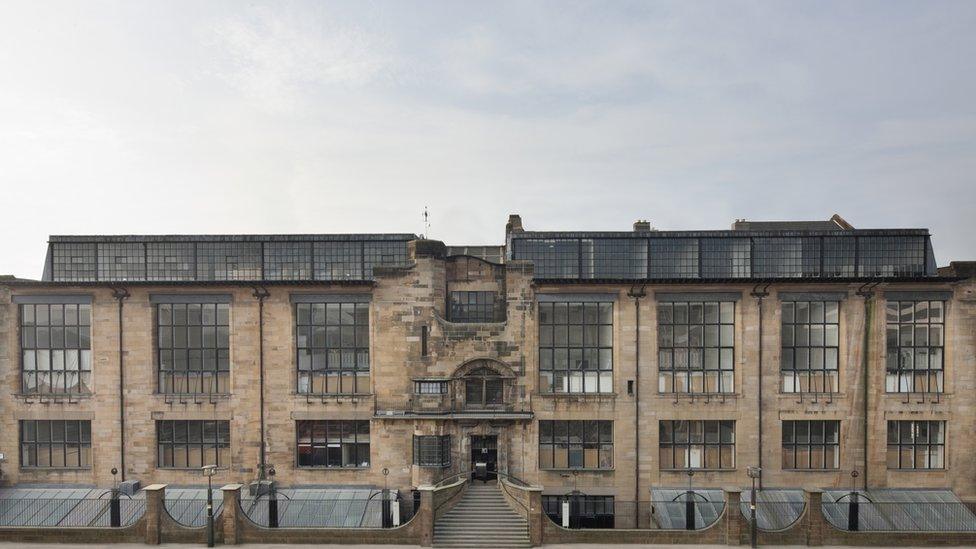Glasgow School of Art fire: Inquiry unable to find cause
- Published
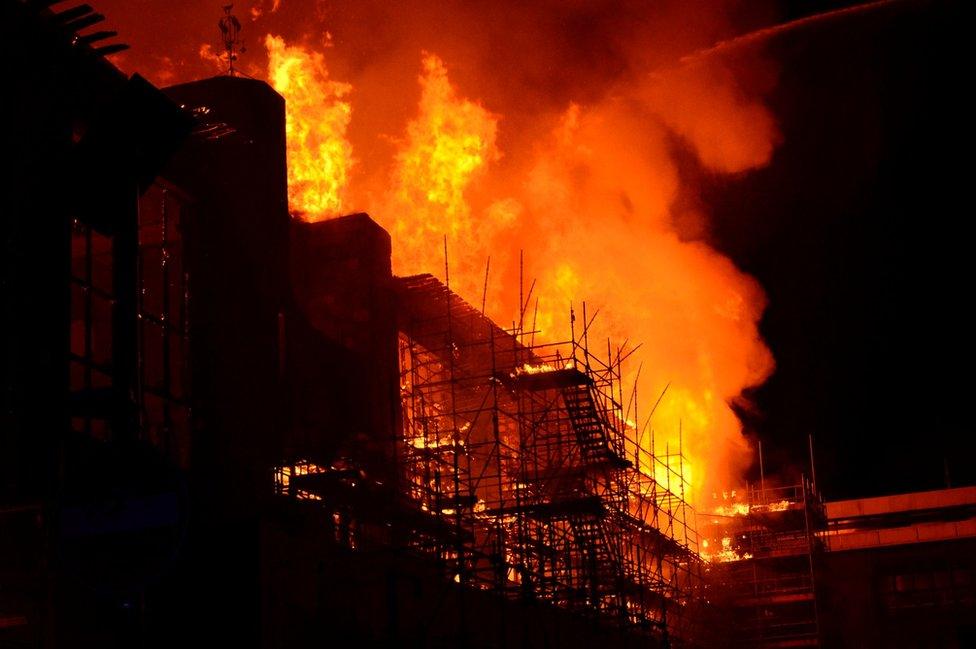
Fire investigators have failed to find a cause for the fire that destroyed Glasgow School of Art's world-renowned Mackintosh building in 2018.
The blaze broke out on 15 June - four years after an earlier fire had caused major damage to the building.
But following an investigation lasting more than three years, the final report , externalconcluded that the cause of the second blaze remained "undetermined".
It said this was due to extensive damage and the destruction of evidence.
The art school said it "shared the regret" that the exact cause of the fire had not been identified and would take time to consider the report and its recommendations.
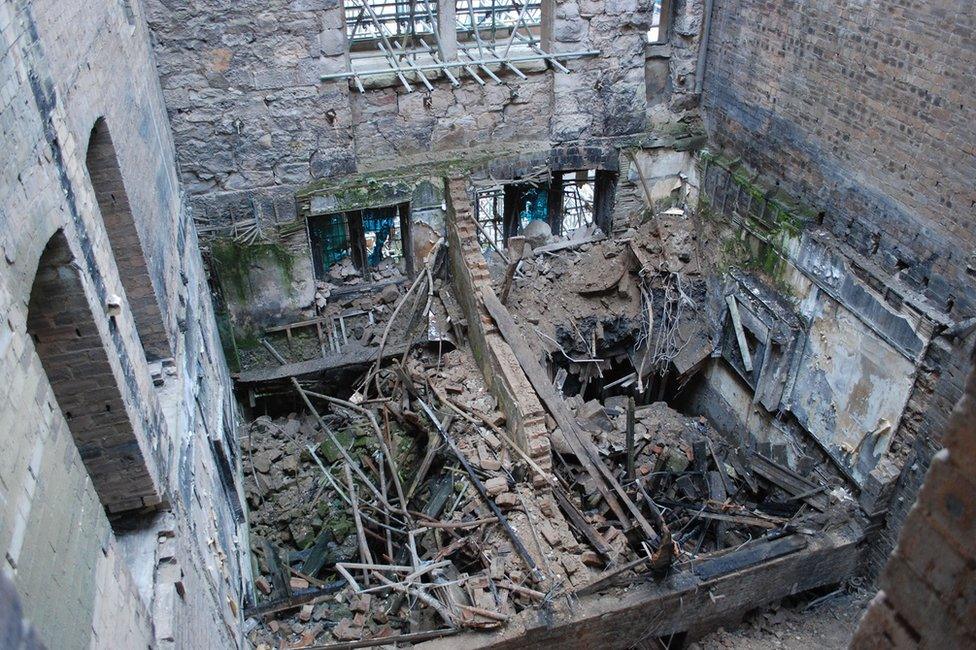
Investigators had to sift through hundreds of tonnes of fire-damaged debris
The fire investigation, which lasted until 30 September 2021, involved the excavation and physical examination of hundreds of tonnes of fire-damaged debris.
Witness testimonies, CCTV and photographic footage were also analysed.
The fire took hold as the Charles Rennie Mackintosh building on Renfrew Street neared the end of a £48m restoration, following the earlier blaze in 2014.
The alarm was raised by a security guard at 23:19, with the first fire appliances on scene within six minutes.
A passer-by noticed a glow in the building and smoke coming from the roof at 23:21 and took a photograph. This was also captured on CCTV cameras on the Reid building opposite.

However, investigators later learned that the first possible indication of fire in the area was one hour and 34 minutes before the first 999 call.
A member of the public walking along Renfrew Street at about 21:45 smelled "burned material", but attributed it to the ongoing renovation works or a residual fire smell.
At its height, more than 120 firefighters worked to contain and extinguish the fire. There were no casualties.
Firefighting operations continued for a further 10 days.
The neighbouring O2 ABC and other premises, including Jumpin Jaks nightclub, were also severely damaged in the fire.
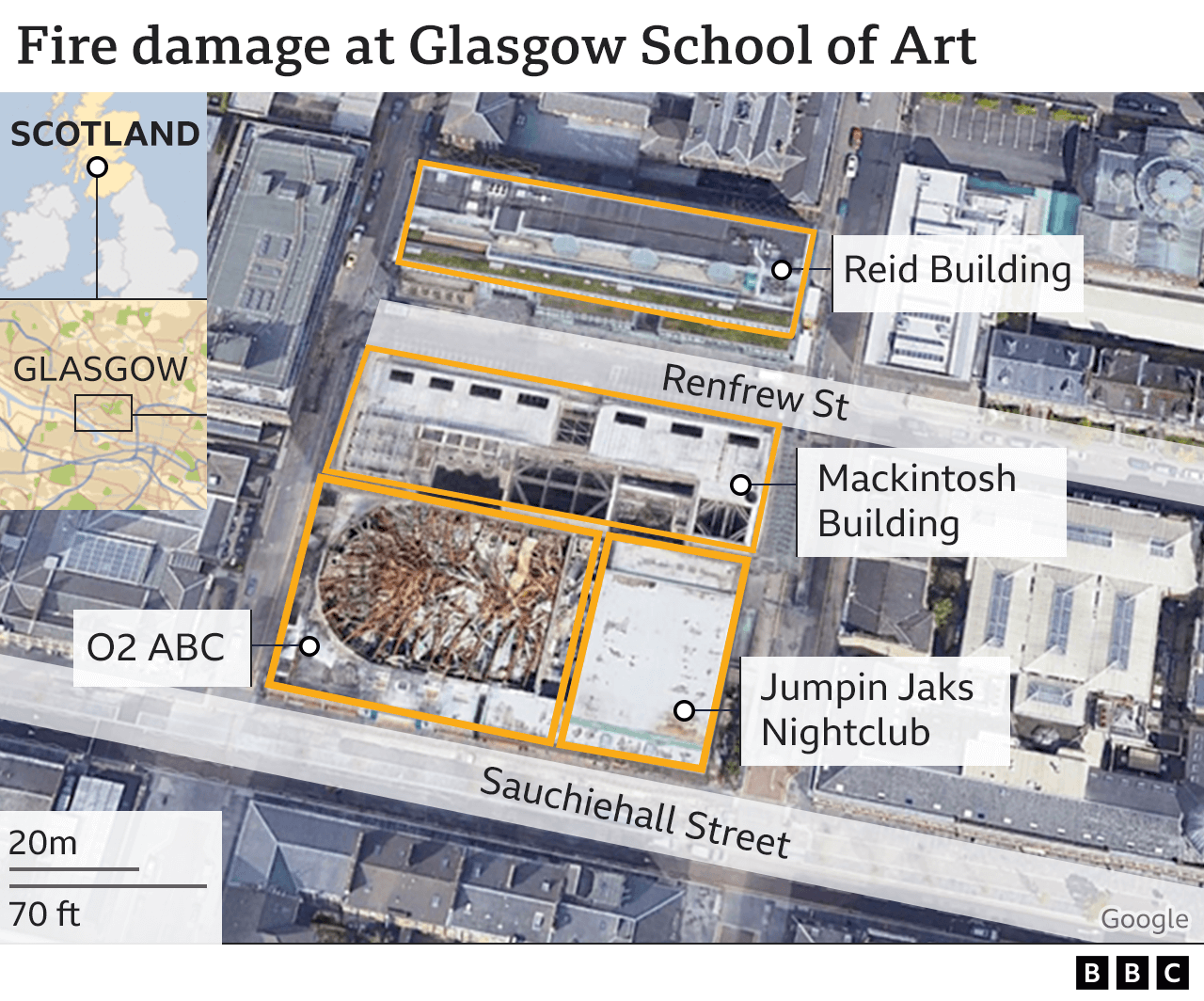
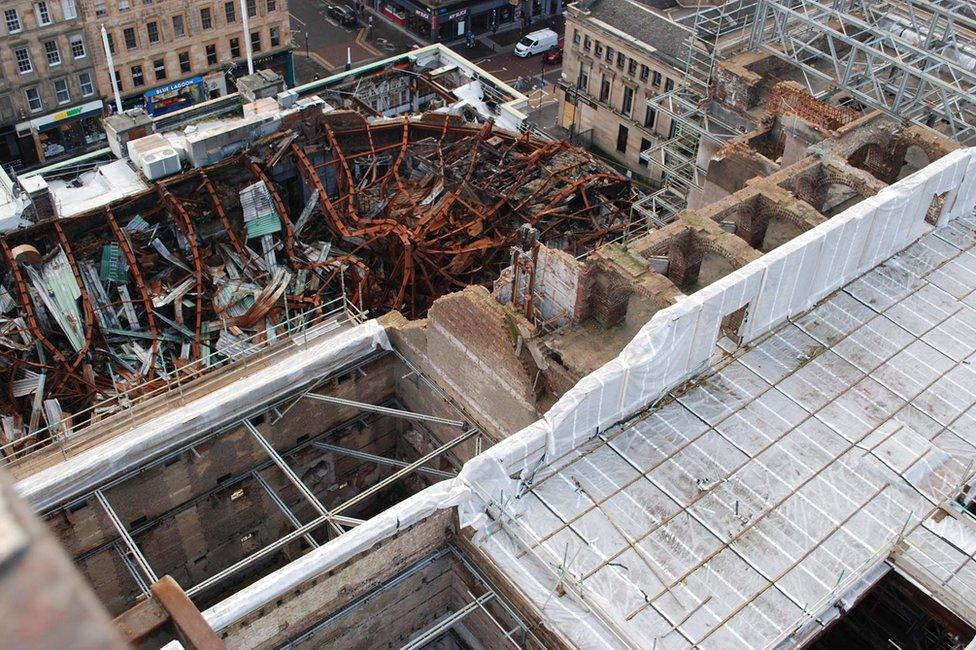
The fire also caused severe damage to the adjoining 02 ABC
The report found that it was likely the fire started on the east side, on or above level four of the Mackintosh building.
It added that an unlimited air supply fed through the duct system which served to intensify the fire, "promoting uncontrolled fire growth and rapid development".
Within 38 minutes of the arrival of firefighters, 50% of the building, which had 10 levels, was well alight.
The initial external observations of the building found that there had been a "failure of approximately 97% of the windows, severe spalling of the sandstone outer façade, warping of steel beams and severe fire and heat damage to the scaffolding structure that encased the building.
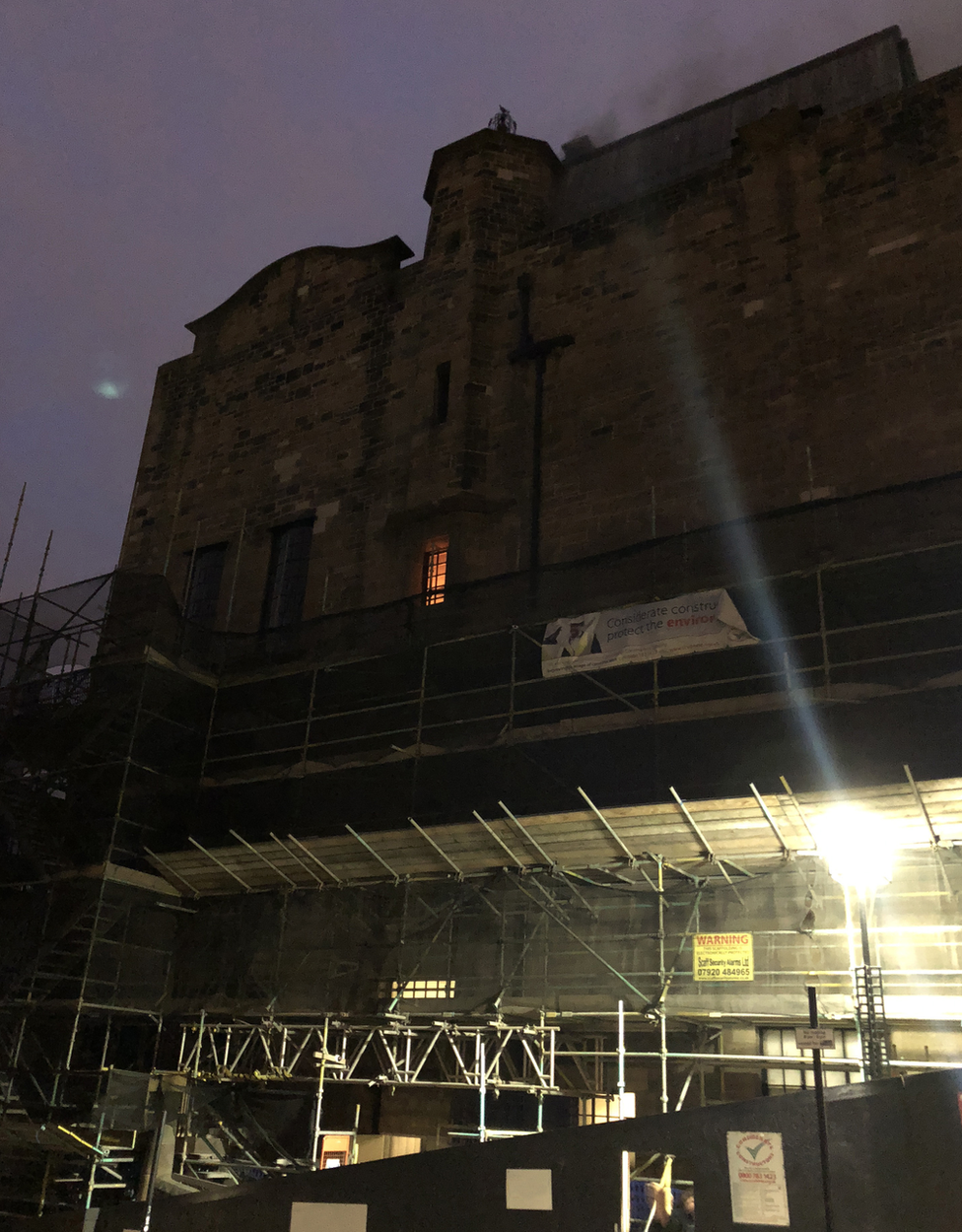
A member of the public took this photo showing the glow of the fire at 23:21

"The entire roof structure had perished with only stone, brick and distorted steel structural members remaining."
Inside the building, timber flooring and ceilings had been "consumed by fire".
The report added: "Remaining exposed steelwork was warped and twisted, hardly any timber remained, and walls were stripped to brickwork as surface finishes had been consumed in the intense heat."
Some of the footage used in the investigation was taken by the BBC, which had been making a programme documenting the restoration of the art school.

What are the possible causes?
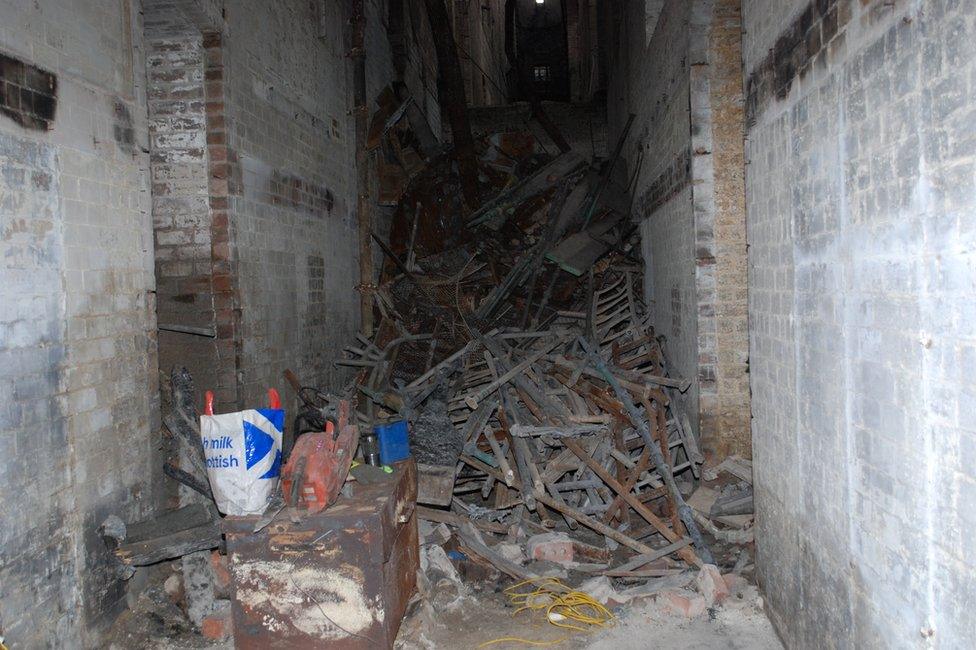
Some of the debris was 4m (13ft) in height and heavily compacted
Fire investigators looked at a number of possible causes. Some were discounted, but others could not be ruled out.
Was it started deliberately? Scaffolding which was in place for ongoing restoration work had an alarm that detected any movement and alerted security guards. However, it did not cover the entire structure.
The report said someone could have accessed the building via the scaffolding and would have had "full access to combustible materials and an unknown ignition source".
CCTV footage from St Aloysius College captured a lone figure in a car park three hours after the fire was started. The person appeared to watch the fire crews for 78 minutes. However, they have never been traced.
The Scottish Fire and Rescue Service (SFRS) investigation found no evidence to suggest the cause of the fire was due to a deliberate act - but the report said wilful fireraising could not be fully discounted.
Was there an electrical fault? The investigation considered seven theories that could support an electrical source as the cause of ignition.
One of the possibilities that could not be ruled out was ignition caused by temporary site supplies such as cables, transformers, batteries and lighting.
However, investigators said there was a lack of evidence to support this theory.
Was it accidental ignition? The possibility that the fire was started by a discarded cigarette was considered to be unlikely but could not be fully ruled out.
And a theory that the fire was caused by a sander was also thought to be unlikely but could not be fully discounted.

Ross Haggart, SFRS deputy chief officer, said the investigation had been "a deeply complex and protracted process".
"Due to the nature of the ongoing restoration and construction works combined with other factors such as the air supply into the building, the fire was unfortunately able to take hold, spread and ultimately cause catastrophic damage," he said.
"This presented a number of challenges to our investigation, namely working within a structurally dangerous site to physically examine hundreds of tonnes of debris which was up to four metres in height and heavily compacted."
Fire Brigade Deputy Chief Officer Ross Haggart says 50% of the art school was ablaze less than 40 minutes after firefighters arrived
He said the brigade was "acutely aware" of the cultural significance of the Mackintosh building and the pressing need for answers.
"We scrutinised every aspect of this fire to ensure our investigation was as robust and thorough as possible," he said.
"Unfortunately, almost everything within the building was severely damaged or consumed in the fire and that included any potential items of evidence that could have provided those answers."
He added: "We were unable to find sufficient evidence to support any credible origin and it has not been possible to establish a definitive cause.
"However, we have made a number of recommendations, including the introduction of new mechanisms to enhance information sharing around ongoing construction projects within Scotland to ensure the safety of our firefighters and our communities."
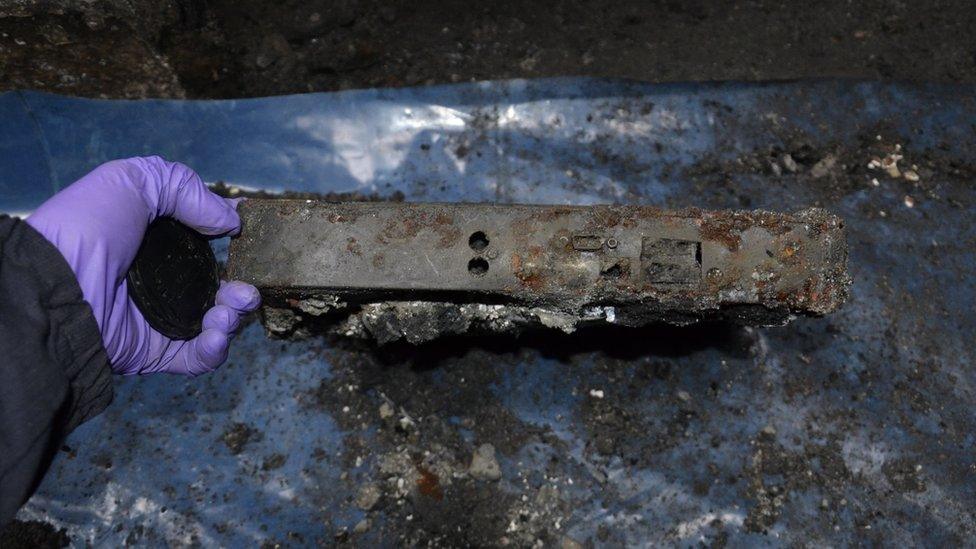
Much of the evidence was destroyed in the fire - such as this CCTV hard drive
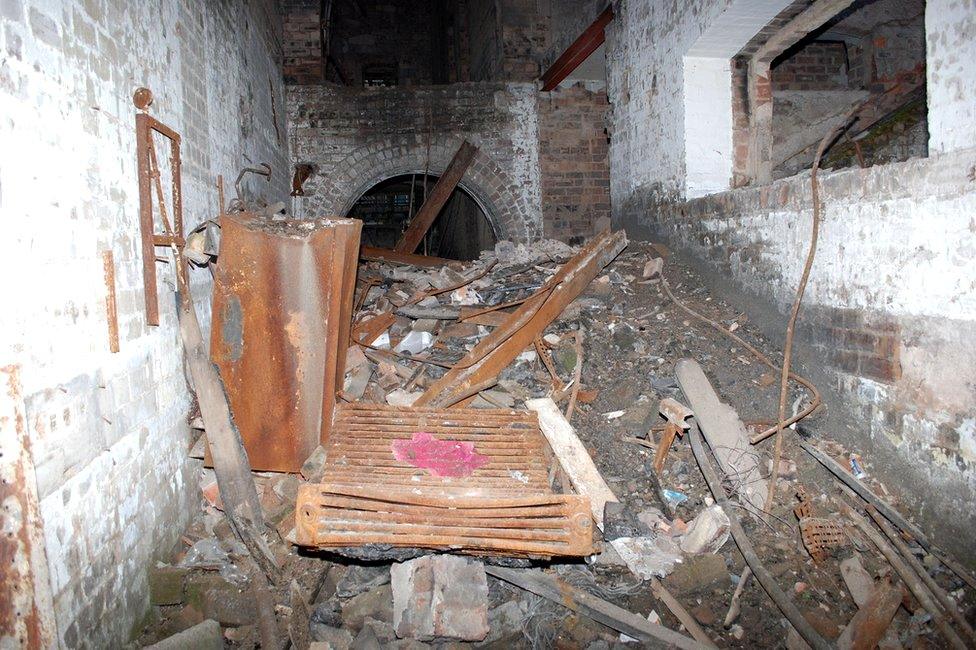
The report says future projects should appoint "competent persons with the appropriate skills, knowledge, qualifications and experience" to make sure full fire risks are considered.
It says a fire risk assessment should put in place, which should be continuously reviewed and evaluated.
Prof Penny Macbeth, director of the art school, and Kristen Bennie, interim chair of the board of governors, thanked the SFRS for its "meticulous approach to this incredibly complex investigation".
"It has been a very difficult time for the city, and in particular our closest neighbours, for students, staff and the wider heritage sector, all of whom have been impacted in myriad ways by both Mackintosh Building fires," they said.
"While the SFRS fire investigation report is detailed and comprehensive, we share the regret that many will feel that the exact cause of the fire has not been identified.
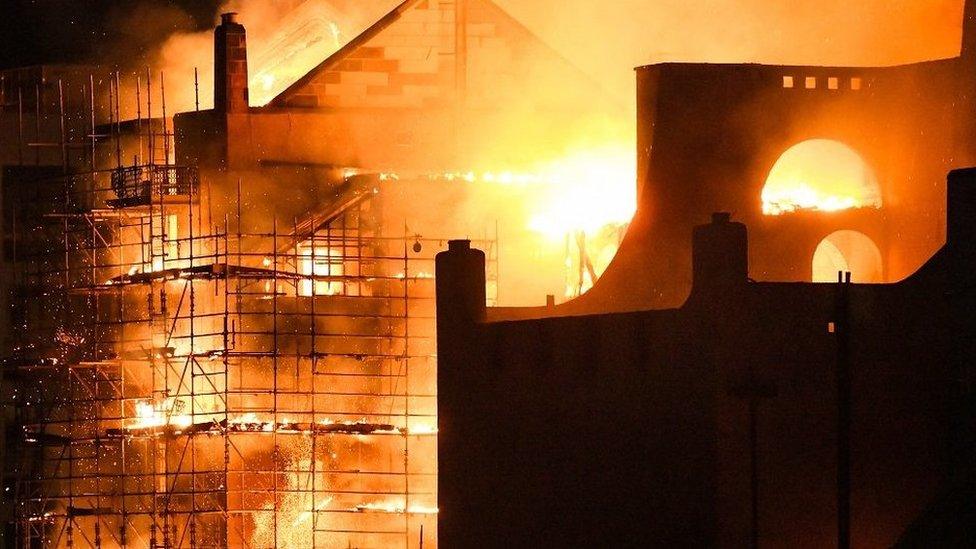
The fire ripped through the building which was undergoing restoration
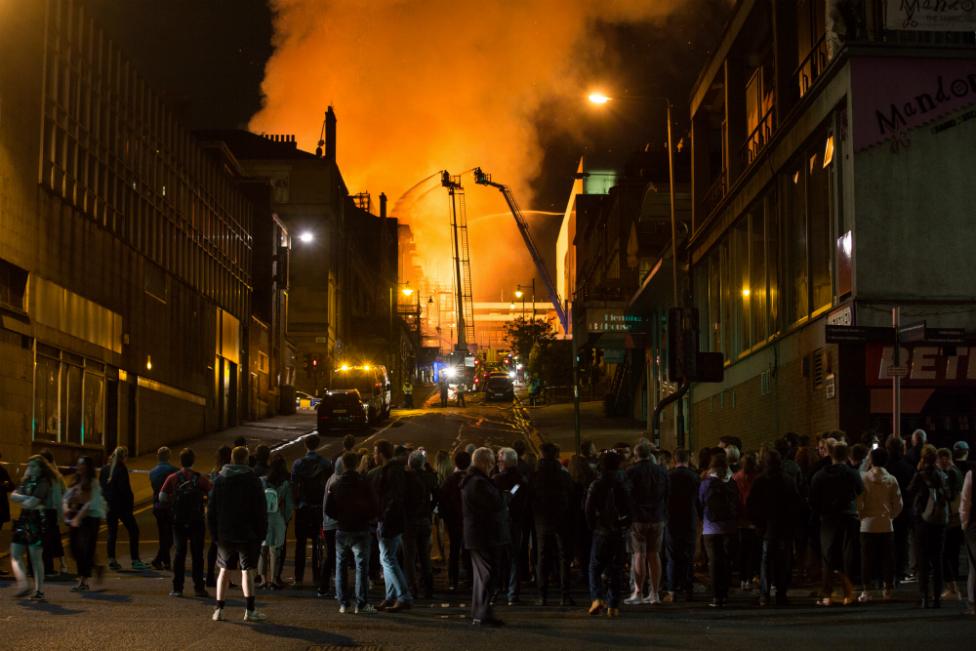
Large crowds looked on as firefighters tackled the blaze
"Taking time to study and consider the report thoroughly, in particular the recommendations, we will now undertake and share a lessons learned exercise on all aspects of the restoration to inform future construction projects."
Their statement added that the report was an "important milestone", allowing the art school to go ahead with its plans to faithfully reinstate the Mackintosh building.
The fire broke out while the building was in the process of being fully refurbished following the 2014 fire.
That blaze significantly damaged much of the west side of the building, destroying most of the library area, several art studios and office accommodation.
Refurbishment work had started during the summer of 2016, with numerous contractors and restoration experts involved in the project.
- Published22 October 2021
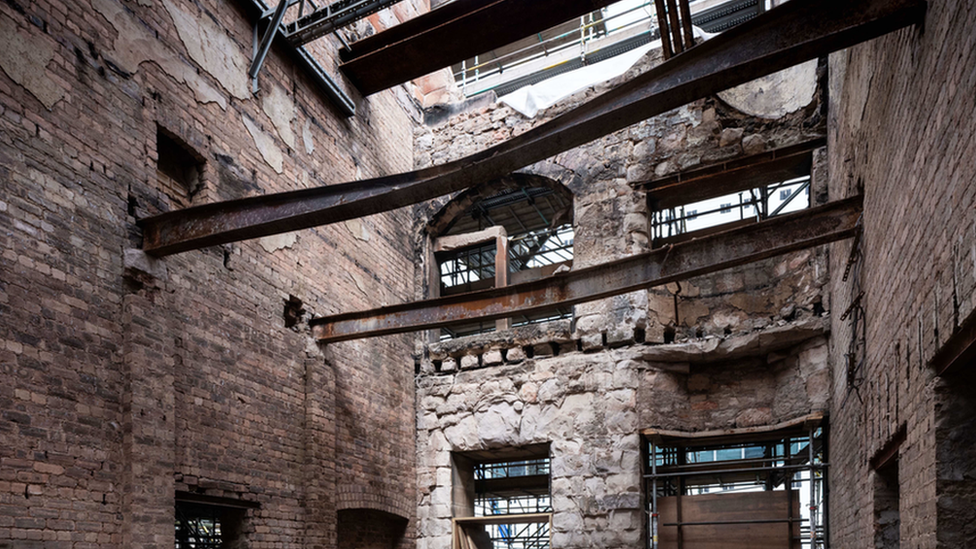
- Published14 February 2020
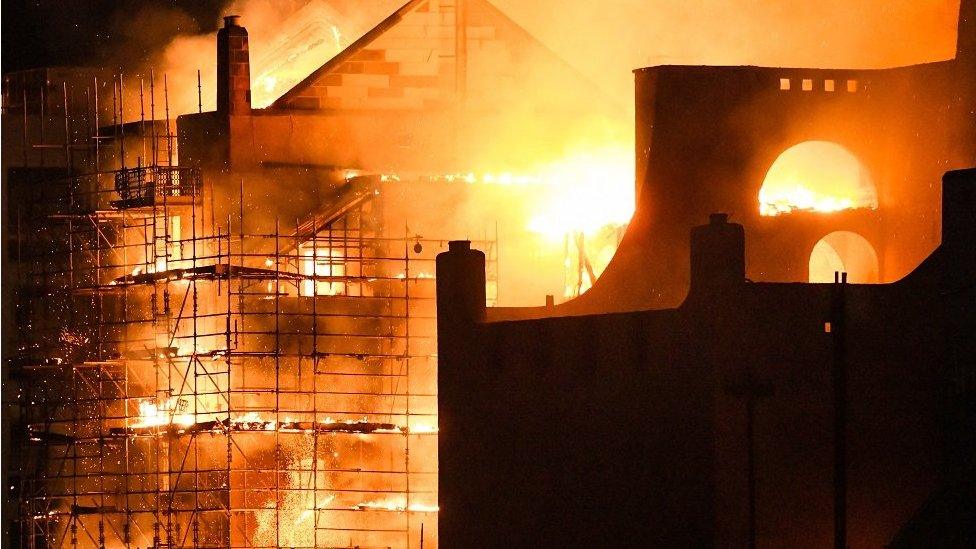
- Published14 June 2019
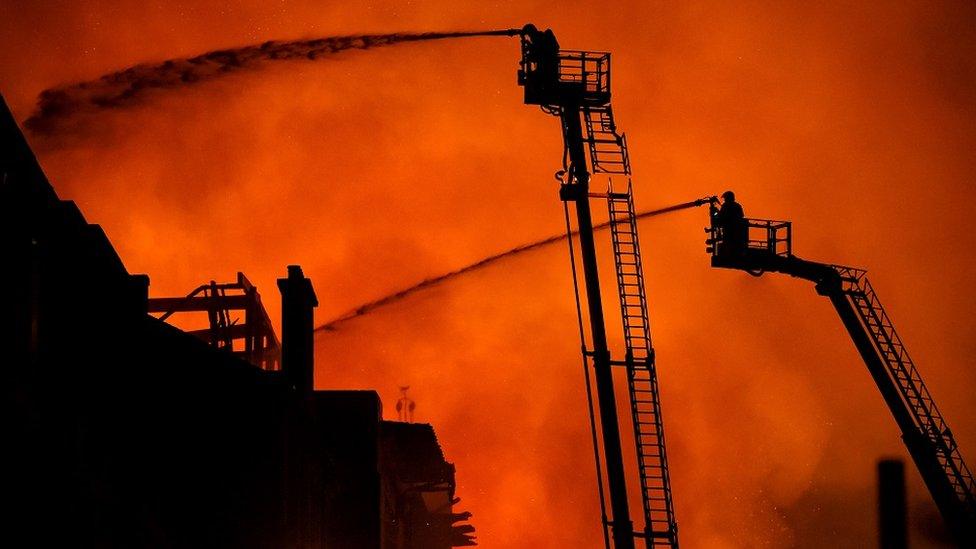
- Published18 June 2018
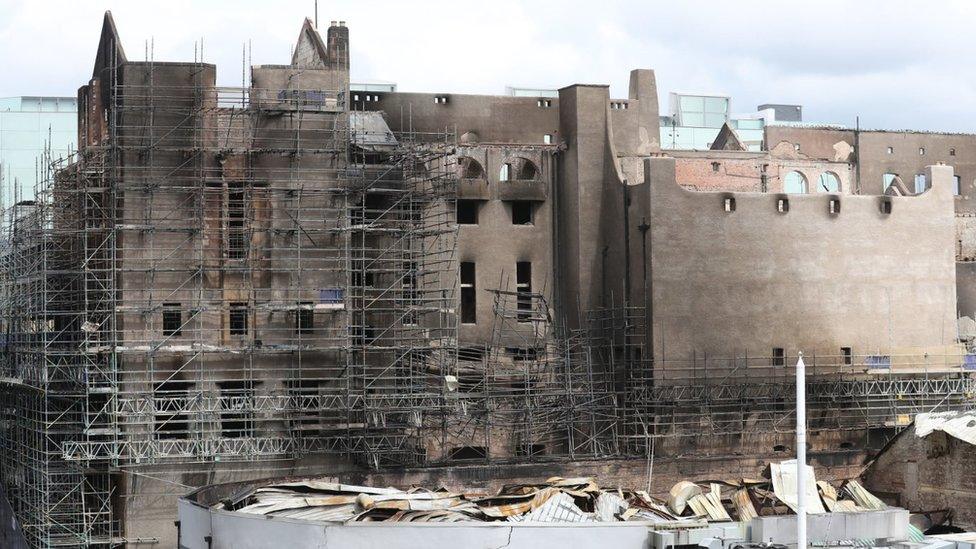
- Published16 June 2018
